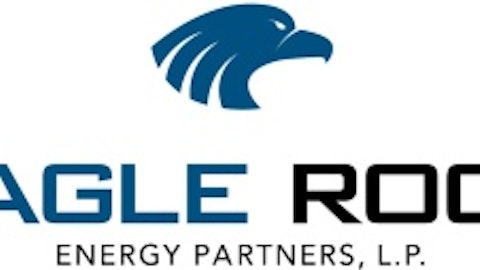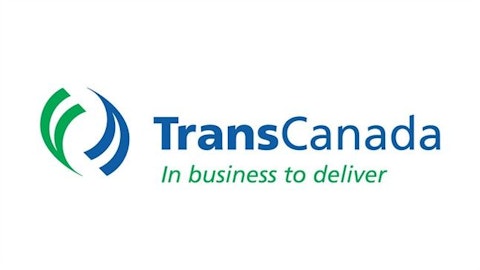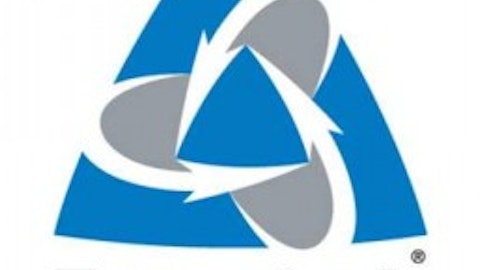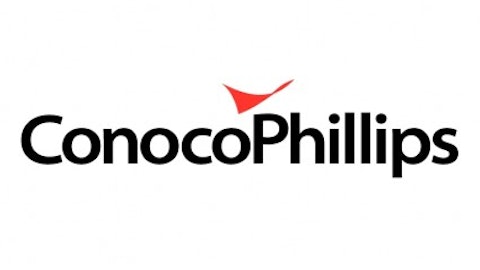Over the past year and a half, Marathon Oil Corporation (NYSE:MRO) has been busy selling some of its assets as the Houston-based company aims to improve its balance sheet and boost its cash flow. Let’s take a closer look at its recent sale of an offshore Angola oil and gas field and see what it means for the company.

Sale of offshore Angola field
On June 25, Marathon Oil Corporation (NYSE:MRO) announced that its subsidiary, Marathon International Oil Angola Block 31 Limited, entered into a definitive agreement to sell its 10% working interest in an offshore Angola block to Sonangol Sinopec Shanghai Petrochemical Co. (ADR) (NYSE:SHI) International, a joint venture between Angola’s state-owned oil company Sonangol and China’s state-owned oil company Sinopec Shanghai Petrochemical Co. (ADR) (NYSE:SHI).
The deal, which has a transaction value of roughly $1.5 billion, is expected to close in the fourth quarter of this year, with an effective date of Jan. 1, 2013. Production from the offshore block commenced last year, led by British oil major BP plc (ADR) (NYSE:BP), the project’s operator and holder of a 26.67% stake, as well as Norwegian state-owned oil giant Statoil ASA(ADR) (NYSE:STO) and France’s Total SA (ADR) (NYSE:TOT), both of which also command sizable stakes in the block.
Marathon’s strategy
Though Marathon has enjoyed considerable success in its operations in Angola, and in Africa as a whole, the company’s decision highlights its commitment to its asset divestment program, as well as its renewed emphasis on financial discipline.
If the transaction is finalized, it would mark $2.9 billion in divestitures that Marathon has either closed on or agreed upon since it announced its plan to target up to $3 billion in divestitures back in 2011. The company expects to use the proceeds from the sale to repurchase shares, improve its balance sheet, and for general corporate purposes.
In January, the company announced that it would increase the amount allotted for share buybacks to $2.65 billion through December 2014. Share buybacks mean a reduction in the number of outstanding shares, which is positive for current investors since the decrease in supply should push up the value of the company’s shares.
Marathon’s move also highlights a trend among large exploration and production companies, many of which are seeking to sell billions of dollars worth of assets to pay down debt, buy back shares, and maintain dividend payments, as they attempt to refocus their capital on higher-return projects.
ConocoPhillips (NYSE:COP), for instance, hopes to generate $9.6 billion from its announced asset sales this year, which will be crucial in helping the company meet its funding requirements and maintain dividend payments to shareholders. Similarly, Apache Corporation (NYSE:APA) plans to raise at least $4 billion from asset sales by year’s end, which will be directed toward paying down debt and buying back shares. It appears that all three companies are trying to make the best possible use of investor capital, and that’s always a good thing.
The bottom line
After spinning off its downstream and petroleum assets into Marathon Petroleum Corp (NYSE:MPC) in 2011, Marathon Oil Corporation (NYSE:MRO) has optimized its asset portfolio to focus primarily on drilling in onshore U.S. shale plays, including the Eagle Ford, where it commands roughly 200,000 core net acres, the Bakken, where it has about 390,000 net acres, and resource basins in Oklahoma, where it holds approximately 220,000 net acres.
Overall, Marathon’s decision to sell its Angola stake should be a net positive for the company. Not only does it move Marathon closer to meeting the upper end of its asset sale divestiture program, the proceeds from the sale will allow the company to buy back shares and improve its balance sheet. This should allow the company to continue focusing on its highly successful Eagle Ford drilling program and bodes well for future dividend increases.
The article A Closer Look at Marathon Oil’s Angola Asset Sale originally appeared on Fool.com is written by Arjun Sreekumar.
Fool contributor Arjun Sreekumar has no position in any stocks mentioned. The Motley Fool recommends Statoil (ADR) and Total SA. (ADR).
Copyright © 1995 – 2013 The Motley Fool, LLC. All rights reserved. The Motley Fool has a disclosure policy.





